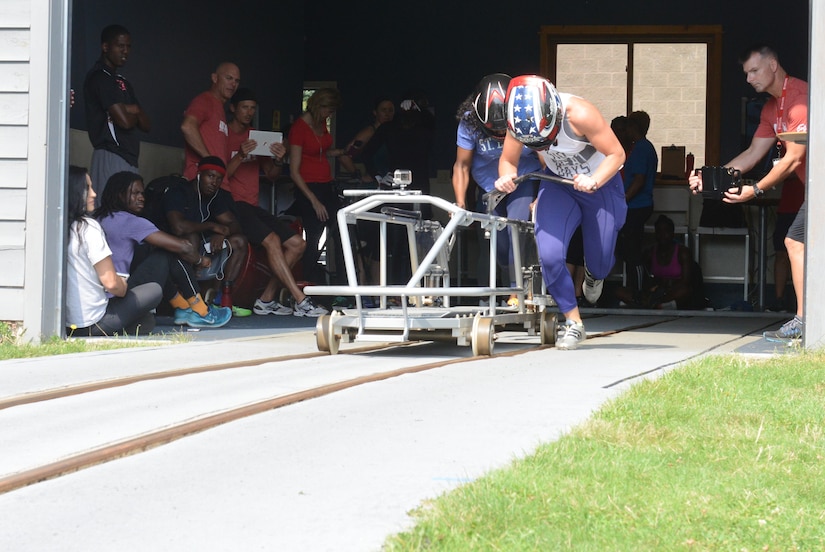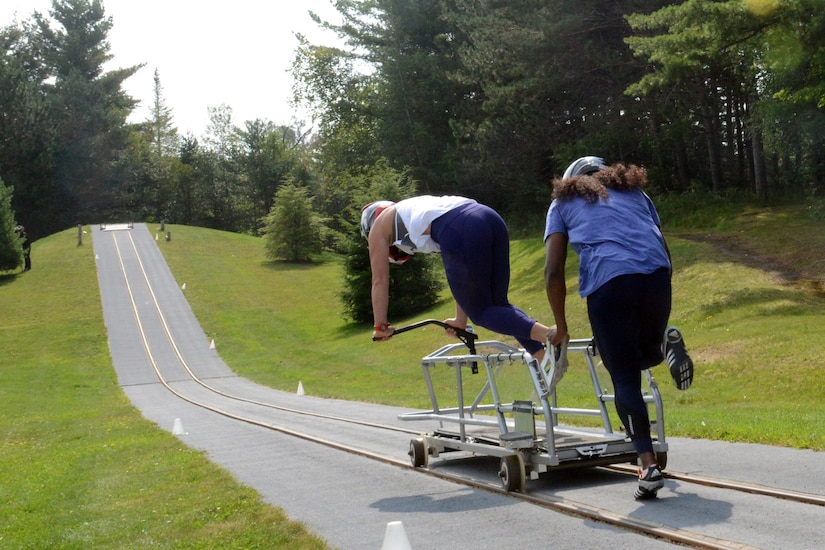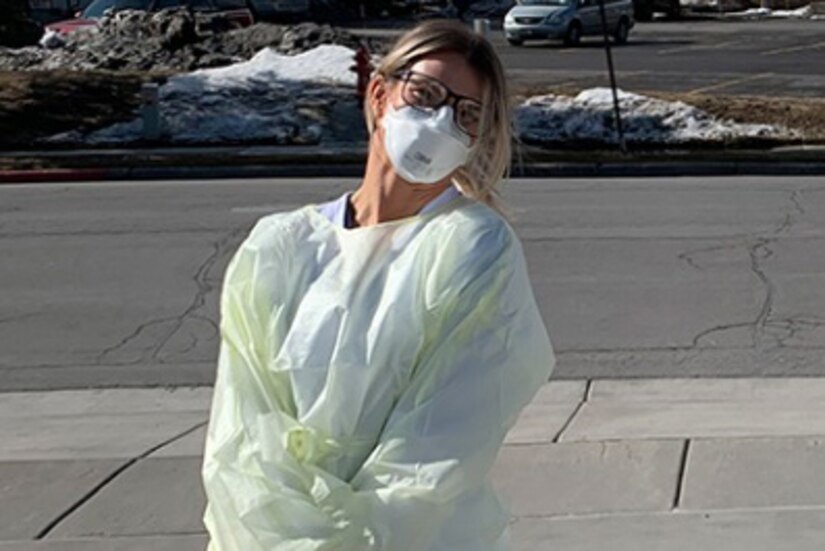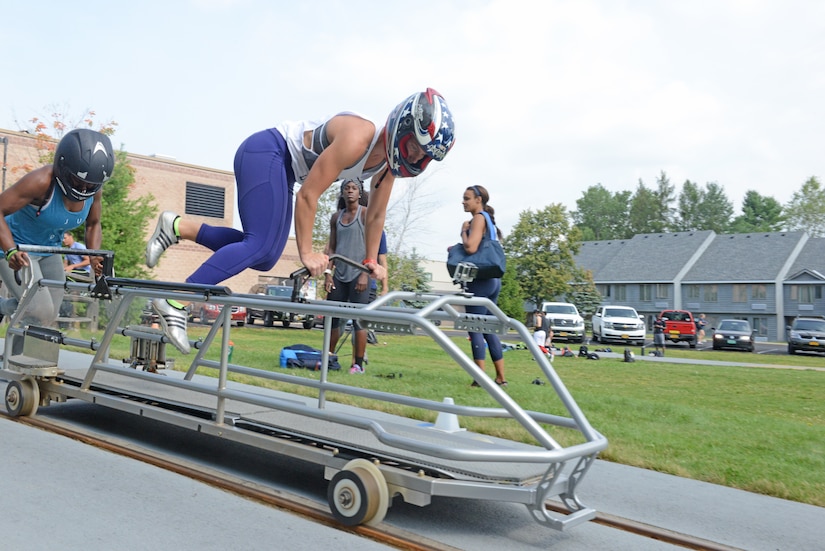Kristi Koplin has an impressive athletic background in track and field. She currently holds Southern Utah University's school record in the hammer throw, discus and weight throw. She was an alternate in the 2014 Olympics and is a former member of the Army's World Class Athlete Program in the bobsled.
These days Koplin is experiencing victory as a captain in the Army Nursing Corps with the 328th Field Hospital at Fort Douglas, Utah; a nurse at Urgent Care in Heber City and Park City, Utah; and a graduate of U.S. Army Airborne School.

In 2014, Koplin was selected as an alternate in the Winter Olympics in Sochi, Russia. For the next three years she competed on the North American and World Cup circuits. In 2018 and 2019, she began training for the 2022 Winter Olympics in Beijing, China.
In early January 2020, Koplin crashed during her second-to-last run of the North American Cup Bobsled and Skeleton in Lake Placid, New York, suffering head and neck injuries.
"I was knocked unconscious and woke up with the bobsled smashing my head against the ice and crushing my neck," she said during a recent interview with DOD News. "The crash ended my season early and I left for home to recover. By some miracle, I was not seriously injured."
Koplin announced June 23 that she's retiring from the sport.
"I still have concerns about my brain health. I have suffered a few concussions and I worry about the cumulative effect of these," she said. "I love bobsledding so much, the speed and racing, the opportunity to represent our nation as an athlete and the process of working towards a goal that I have been envisioning for a large part of my life. However, I also value my health and the decision has been something weighing on me since the accident."
"I am always looking forward to my next dream to chase. I am absolutely positive that everything works out exactly like it is supposed to," she added.
Bobsled can be a dangerous sport where speeds often exceed 75 mph. A number of athletes have been killed and most have experienced mild to severe injuries in crashes.
These days Koplin is very busy nursing and dealing with COVID-19 patients.


"I remember the day when they announced that two of the Utah Jazz [basketball] players had tested positive and the entire NBA season would be postponed," she said, referring to the National Basketball Association. "The news itself shocked me. The virus felt like it had hit home. From that point forward, everything changed."
The Urgent Care in Park City became one of the nation's first testing sites for COVID-19, she said. A lot of people tested positive in the area because it's a tourist destination for international travelers, particularly during the Sundance Film Festival, which took place in January and February, as the coronavirus was beginning to rapidly spread.
About that time, she said "We started testing people and educating the community about how to stay safe. With all the unknowns and uncertainty, I could feel the panic emoting from most of the patients I saw."
"My focus shifted," she continued. "I was no longer worried about my
recovery from the bobsled injury but how to react to this unknown virus
invading our lives."
Koplin said some of her most rewarding experiences were caring for
wounded and injured soldiers returning from Iraq and Afghanistan at
Landstuhl Regional Medical Center in Germany.

Being a nurse has been a good fit for her Olympic ambitions too, she said. Her training gives her an appreciation and understanding of how the body works and the important roles played by exercise and nutrition.
Also, her expertise was occasionally needed during training, such as when a bobsled crashes and once when an athlete from another sport was injured by a javelin.
As a former member of the World Class Athletic Program, Koplin urges others to use that organization as a means for achieving their dreams. She said there are perhaps many soldiers who have it in them to compete and would love to become Olympians, but don't realize how easy it is to apply, simply by visiting the WCAP website, looking up the criteria for a chosen sport and filling out an application.
Koplin mentioned that even with drive and determination, she would have struggled without the support of WCAP in terms of coaching, providing first-class training facilities and financing. "Being in WCAP took away any worries so I could focus 100% on training."
There are several factors that aspiring athletes should consider, she said. First and foremost, the person should be a good soldier. While training, it is up to each soldier to continue to meet the Army's requirements, including the physical fitness test and annual weapons qualification. Also, living the Army values, she said.

Training and diet play an enormous part too, she said, noting that she does rigorous workouts with weights and sprinting six days a week.
One final factor that Koplin said it takes — and she hesitated to mention it for fear of sounding mean — is genetics.
"No matter how self-motivated and hard-working you are, if you don't have the genes for your chosen sport, you won't succeed," she said.
No comments:
Post a Comment